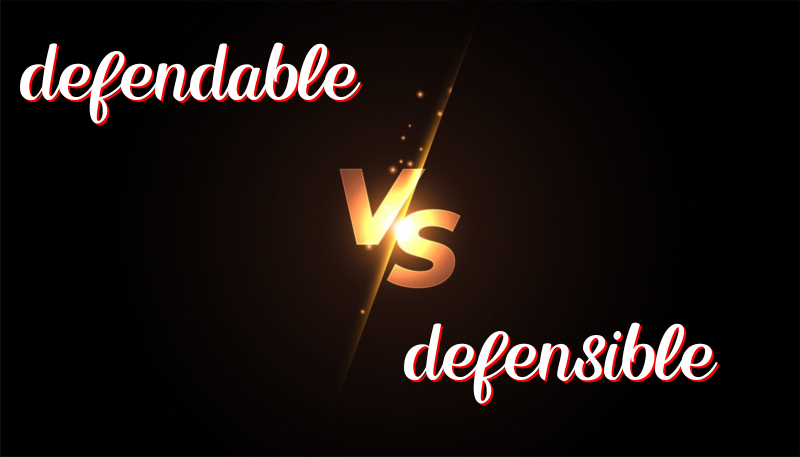The Difference Between Defendable versus Defensible
The Difference Between “Defendable” versus “Defensible”
These two words, “defendable” and “defensible,” may seem quite similar, but they have subtle differences in meaning and usage.
History:
The word “defendable” came into the English language in the early 17th century, derived from the verb “defend.” It means capable of being defended. On the other hand, “defensible” also originated around the same time, stemming from the same verb “defend.” It means capable of being protected or justified.
How to Use Them:
When you say something is “defendable,” you mean it can be physically or tactically protected. When you say something is “defensible,” you imply it can be morally or logically justified.
Trick to Remember the Difference:
Think of “defendable” as focusing on physical protection and “defensible” as concentrating on moral or logical justification.
Examples:
Defendable:
- She built a tall, defendable wall around her house.
- His argument about the situation’s defendable nature was convincing.
- The castle had a defendable position on top of the hill.
- The witness provided defendable evidence in court.
- It wasn’t the most defendable decision, but it was necessary at the time.
Defensible:
- His actions were morally defensible in that extreme situation.
- She made a defensible argument for why she should get a raise.
- The company’s policy was legally defensible in court.
- His theory was scientifically defensible according to the data.
- It’s a defensible position to take in the current political climate.
Summary:
To summarize, “defendable” is used when something can be physically protected, while “defensible” is used when something can be justified morally or logically.

Leave a Reply
You must be logged in to post a comment.